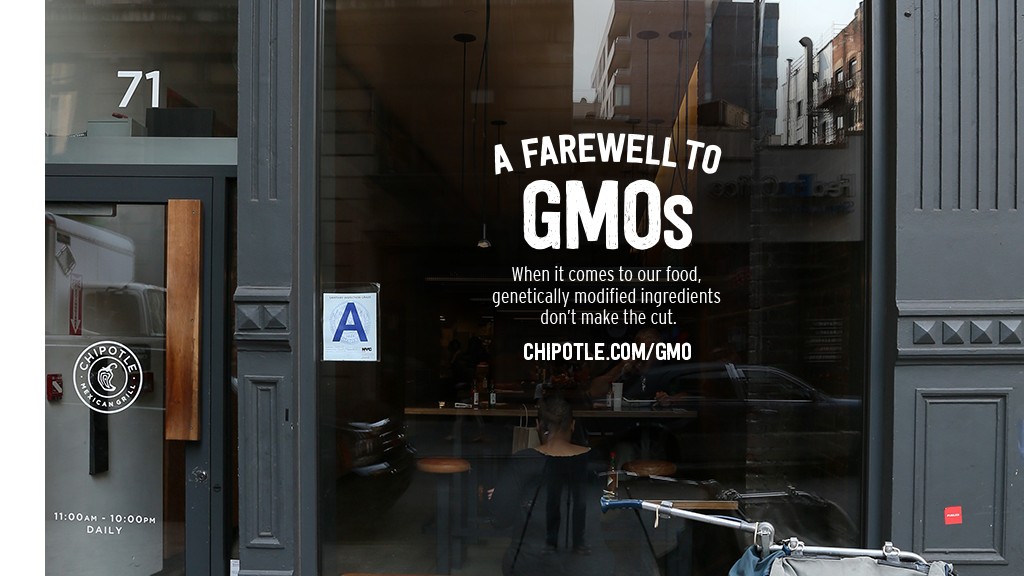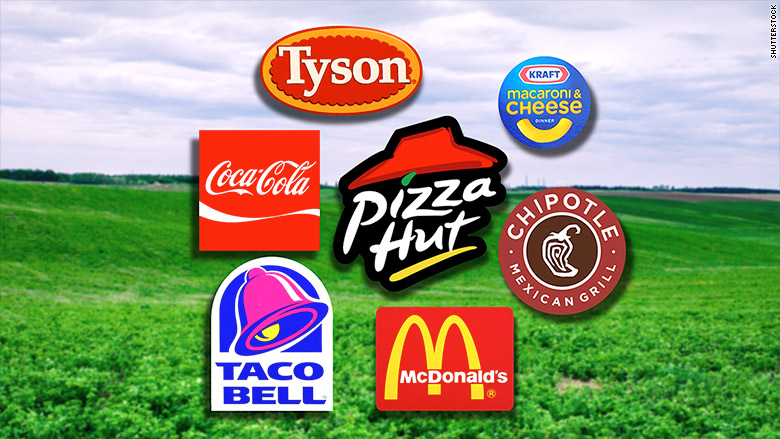
A number of major fast-food chains and food companies have recently announced healthier practices, moving to all-natural ingredients and ending the use of downright strange and sometimes hard-to-pronounce additives -- a trend that experts say is having meaningful impact on our food supply.
The ever-lengthening list includes:
1. Pizza Hut and Taco Bell (YUM): Announced on Tuesday they were going all natural, removing all artificial colors and flavors. Among other things, Taco Bell said it will switch from artificial black pepper to actual black pepper (but wouldn't reveal what was in the artificial version.)
2. Panera (PNRA): Made a similar promise earlier this month, saying that it will no longer put things like "Tert-Butyl-Hydroquinone" in your sandwich.
3. Dunkin' Donuts (DNKN): Dropping titanium dioxide from its powdered sugar donuts to make the powder appear brighter. It is also used in sunscreen and paints.
4. Kraft (KRFT): Nixing the signature artificial yellow dye from its macaroni and cheese. The new dye will use spices like paprika, annatto and turmeric -- and the company promises the mac and cheese will taste the same.
5. Tyson Foods (TSN): Eliminating antibiotics from its chickens over concerns that widespread use is leading to an increase in drug-resistant bacteria in both animals and people.
6. McDonald's (MCD): Made a similar announcement in March.
7. Chipotle (CMG): Moving away from genetically modified food, with the co-CEO saying, "They say these ingredients are safe, but I think we all know we'd rather have food that doesn't contain them."
8. Coke (KO): Eliminated brominated vegetable oil, which is used as a flame retardant in plastics, upholstered furniture, and clothing for children. Coke had used it in Fanta and Fresca, among others.

Experts say these latest moves represent a real effort to make food both healthier and better for the environment, while also tapping into the growing consumer demand for more natural products.
"We're seeing a shift that will make our agriculture system much more sustainable," said Mark Milstein, a management professor at Cornell and head of its Center for Sustainable Global Enterprise. "But it's in transition now, it's not there yet."
More organic food, greater access to healthy choices, better farming practices and working conditions are some of the areas that need improving, he and others said.
Some also say corporate America has been slow follow the model of small farmers and niche retailers into more healthy offerings.
"These big companies, instead of following, they should be taking the lead," said Danielle Nierenberg, president of the research organization Foodtank, adding that some of the recent changes should have been undertaken years ago.
But even the U.S. head of Slow Food, the international organization that has long criticized industrial agriculture, seemed cautiously optimistic about the latest announcements.
"What was once considered unrealistic is now pragmatic and good business," said Richard McCarthy, Slow Food USA's executive director. "While the fine print may not speak to dramatic shifts...the bounds of thinkable thoughts are moving towards our belief that food should be good, clean and fair."


